ChatGPT: are AI-generated cover letters the way forward?
Jan 26, 2023
9 mins
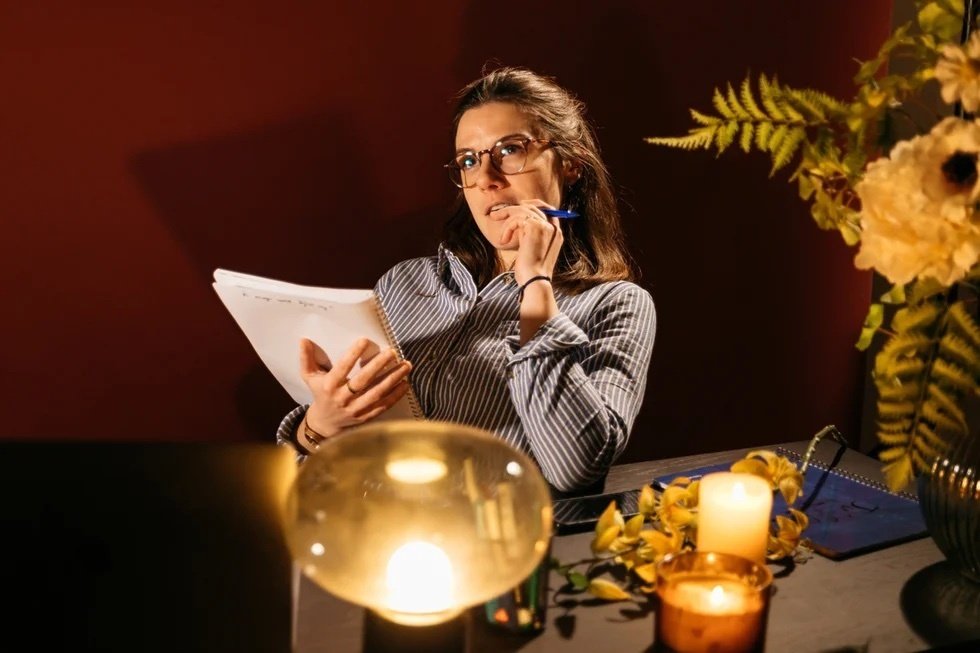
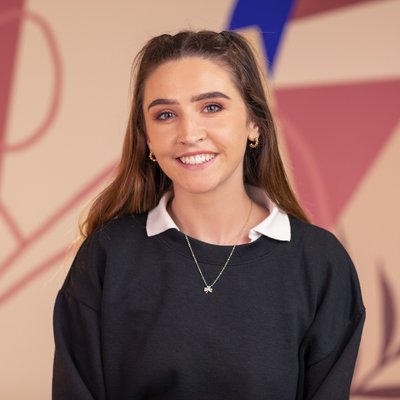
Senior Editor at Welcome to the Jungle
2023 is the year of the rabbit and, unless you’ve been living under a rock since last November, you’ll know that it’s also the year of ChatGPT. This artificial intelligence tool is revolutionizing the digital ecosystem. With impressive capabilities in code debugging, text summarization, and—you guessed it—writing, the tool has taken the world by storm. So, it was only a matter of time before job hunters figured out a way to use it: writing cover letters. But is this the answer to all your cover letter woes?
To answer this question, we put ChatGPT to the test by creating two sample cover letters and having them reviewed by Senior Talent Acquisition Specialist, Paige Poole. Based in Austin, Poole is a seasoned cover letter expert. She shares her insights, doubts, and advice for job hunters using ChatGPT in the application process.
How does ChatGPT work?
ChatGPT, or Generative Pre-trained Transformer, is a large language model developed by OpenAI that can understand and generate text. The model is trained on a huge amount of text data and can be used to generate a variety of formats, including cover letters for job applications.
Users can input a text prompt into the tool and receive a response within seconds. With a tool like this at free disposition, it’s no wonder people are starting to investigate its usability on the job hunt. But beware—there are precautions to take when using it and limits to be aware of.
Are AI-generated cover letters good?
To test the quality of cover letters written by ChatGPT, we provided two prompts to the tool. The first was a simple one-line instruction asking for a sample cover letter for a job in a specific location, and the second included a real job description. Here’s what we got:
Example 1
When provided with a simple prompt asking for “a sample cover letter for a 24-year-old job hunter in New York City looking for a role as a social media manager,” this was the output received:
Dear Hiring Manager,
I am writing to express my interest in the Social Media Manager position at your company. As a 24-year-old job hunter, I am eager to bring my skills and experience to your organization and help connect with your target audience through social media platforms.
I have several years of experience in social media marketing, having worked for several small businesses as a freelance social media manager and a social media specialist in a marketing agency. I have a proven track record of creating and implementing effective social media strategies, managing accounts, and conducting analytics to measure the success of campaigns. Additionally, I am well-versed in various social media platforms, including Facebook, Instagram, Twitter, and LinkedIn, and I am always up-to-date with the latest trends and best practices in social media.
I am also a creative individual with a passion for developing visually appealing content that resonates with the target audience. I am skilled in using design tools such as Adobe Photoshop, Canva, and Illustrator, and I am confident that I can bring a fresh perspective to your social media efforts.
I am excited about the opportunity to join your team and help your company achieve its social media goals. Thank you for considering my application.
Sincerely,
[Your Name]
Example 2
When provided with the same prompt plus a link to a real job description, this is the cover letter produced by ChatGPT:
Dear Hiring Manager,
I am writing to express my interest in the Social Media Manager position at your company. As a 24-year-old with a Bachelor’s degree in Digital Media and 3-5 years of experience in digital and social media marketing, I believe I am a strong fit for this role.
In my previous experience working with an established agency, I have developed and implemented specific client’s social media strategy, with a focus on presence within social media and ensuring a consistent voice across different channels. I am proactive, solutions-oriented, adaptable to change, strategic, data-driven, and technologically savvy, with an expansive knowledge of and interest in the ever-changing marketing and social media landscape. Additionally, I have a strong eye for compelling creative and trends.
I am excited about the opportunity to take on the key responsibilities of this role, including day-to-day supervision and execution of client campaigns, support account leads and develop and manage initiatives in the digital space, monitoring and benchmarking social media activities of other competing brands, identifying and tracking emerging trends, and developing social media strategies and calendars.
I possess excellent time management skills and adherence to deadlines, and have experience managing and compiling client reports and presentations. I have knowledge of and experience with online analytics/measurement platforms and have experience with Canva design graphics.
I am confident that my skills and experience make me an excellent candidate for this role and I look forward to the opportunity to contribute to the success of your company. Thank you for considering my application.
Sincerely,
[Your name]
Can a recruiter tell if your cover letter was written by an AI tool?
The short answer is yes. Poole says that oftentimes, the lack of personalization is visible from the get go: “When someone has really technical words in there, really broad statements, really general statements, that’s typically how I can tell that it’s not written by them.” So what does a talent acquisition manager think about these AI-generated cover letters?
Structurally sound but qualitatively questionable
While the overall structure of the cover letter looks promising, when analyzed by Poole, she noticed some immediate red flags. “You can definitely tell it’s generic,”_ she says. One phrase that stood out to Poole was, “I’ve worked for several small businesses.” This kind of general statement doesn’t give any personality to the paragraph.
Additionally, Poole highlights the social media element of the letter. “The promt didn’t mention any social media platforms,” she says. However, the response provided lists a range of platforms the applicant is supposedly “well-versed in.” Using this exact response could cause issues for the applicant* as, “that might not be true that they have this experience,” says Poole.
While the letter is fairly well written and looks the part, the truth is that the information it states didn’t come from the prompt, and therefore is presumptuous and maybe even false. Relying on the tool to explain your experiences can be risky and cause problems further down the road in the recruitment should your application be succesful. Poole gives the example: “If you get to the interview and you’re actually talking about these things and the recruiter says, ‘Okay, so you’re really good at Photoshop. Show me something that you’ve done.’ You won’t be able to if you’ve never used Photoshop in your life!”
Finally, Poole shares that the closing lines of the AI-generated cover letters sound too generic. According to Poole, the line, “I am confident that I can bring a fresh perspective to your social media efforts,” doesn’t make your intententions clear enough: “It doesn’t say why or what that perspective is.” Overall, the motivation of the applicant does not come across as genuine, and Poole says it would be important to reword certain aspects of the cover letter, especially when mentioning how you want to help the team achieve its goals. “I think in a great cover letter, you would want to actually mention what your goals are.”
Context helps, to a certain extent
While the second letter was a little more fine-tuned and related back to the specific job description in question, Poole still isn’t convinced it would be a useable option for an applicant. “One thing that like immediately stuck out to me was in the beginning where it says ‘I have three to five years of experience in digital social media marketing.’ Obviously, you yourself would put the exact year and not the range of years.”
Despite the tool being provided with additional data for this letter, Poole admits she would immediately have been able to identify this as not being written by the applicant themselves. “Without even reading the job description, I could probably tell you exactly what the job description says because every single thing that was in it is so clearly in here,” she says. While it’s important to relay your skills and experience back to the job description in question, Poole insists that you remain truthful and don’t copy word for word what’s written in the ad. The recruiter who receives your application will likely know the wording of the job description by heart, so any exact replicas presented in a cover letter will stand out—and not in a good way.
Benefits of using ChatGPT to write a cover letter
Of course, a data model is only going to be as good as the data it’s fed with. So while these cover letters are good examples of what the tool is capable of, it’s important to note that the more information you include in your prompt, the more chances you give the tool of producing something of quality. ChatGPT is a revolutionary tool and that cannot be denied, so what are some potential benefits to job hunters using it to write their cover letters?
Source of inspiration
We all know the feeling of staring at a blank page, not knowing where to begin with a cover letter. ChatGPT can help release this writer’s block. “I think the best way is to use it to give yourself ideas, to see examples,” Poole says. By testing a few different prompts and comparing what you see, you can “take a little bit from each one.”
Time-saving
The sample cover letters shared above were generated in a matter of seconds. And while Poole advises not to take the first output and submit it directly to a job ad, there’s no hiding the fact that it’s a huge time saver when it comes to writing your cover letter. Even if you use the output solely for its structure, you’re already saving that time.
Grammar and spelling checking
What’s a better way to throw an application out the window than careless spelling and grammar mistakes? By using ChatGPT to generate or inspire your cover letter, you can avoid silly mistakes and ensure a professional-sounding cover letter. This can be especially useful for first-time applicantsor job hunters who may be less confident in their writing skills.
Drawbacks of using ChatGPT to write a cover letter
ChatGPT remains a tool and no matter how well trained the model is, the likelihood of it providing you with an application-ready cover letter is low (for now, anyway). However, if you would like to test it out and see if it ChatGPT can help you in your job search, here are some things to be aware of before using it.
Lack of originality and personalization
One of Poole’s biggest tips for writing cover letters is to write as you would speak. “If you’re writing it in a very professional kind of buttoned-up way and then you get to the interview and you’re very casual, they’re going to immediately know that you did not write that,” she explains. So if you’re relying on a tool to get your application picked up, you should know that it probably won’t sound like you. In fact, you could end up with a cover letter similar to the thousands of generic templates that exist online.
Short-term solution
ChatGPT gives you a quick fix to an essential part of the recruitment process: researching and reflecting on the job and your experience. While it may provide you with a fast solution to help you send an application quickly, Poole says it won’t serve you in the long run. If your AI-generated cover letter does manage to land you an interview, “once you’re there, ChatGPT can’t help you,” Poole warns. All that research and preparation you skipped out on will hurt you.
Dependence on data
ChatGPT is only as good as the data it’s trained on and it may not have the most up-to-date information about the job you’re applying to. This can result in cover letters that are not tailored to the most recent job requirements or company values. Additionally, if—like in the example above—you include minimal information in your prompt, the quality of the results will vary.
Should you use ChatGPT to write a cover letter?
Overall, Poole’s advice is to use ChatGPT as a tool. If you’re lacking inspiration or don’t know where to start with your cover letter, then you can absolutely use it to get your creative cogs turning. “It still provides a great template to use and adjust, and you can make it personal from there.” It’s no secret that cover letter templates are widely used—and widely discourage —and using an AI tool to write your cover letter is not dissimilar to using a copy-paste template you can find online. The advantage though is that you can really tailor the cover letter it generates to make it very personal and relevant to your profile and the job you’re applying to. Additionally, it can be useful to young workers and college graduates when learning the ropes of the job hunt. “It can help you understand more about what a cover letter should look like by seeing all the different kinds of ways that you could do it,” Poole says.
If you’re thinking of relying solely on ChatGPT to get you a job, think again. As advanced as the program may be, putting the fate of your career in the hands of an automated text generator is risky business. “I think that it will definitely hurt your job search because you’re not learning about the company and you’re not really having to do that critical thinking yourself of, ‘How does my experience actually translate to this position?’” Poole shares.
In summary, ChatGPT can be a useful tool for job hunters looking to save time, get inspired, and ensure a professional-sounding document. However, it’s important to keep in mind that ChatGPT may not be entirely original, may not fully understand the nuances of the job or company, and may not have the most up-to-date relevant information. While AI text generators can be a valuable tool for job hunters, they shouldn’t be relied upon exclusively to generate a final cover letter. Ultimately the job hunter should take the final responsibility to ensure that their cover letter is tailored to the specific job and company, and that it accurately reflects their own skills and experiences.
Photo: Welcome to the Jungle
Follow Welcome to the Jungle on Facebook, LinkedIn, and Instagram, and subscribe to our newsletter to get our latest articles every day!

More inspiration: Job hunting in the digital age
Navigate the digital job search landscape with these tips on online job search, social media job search, and using job search apps and tools.
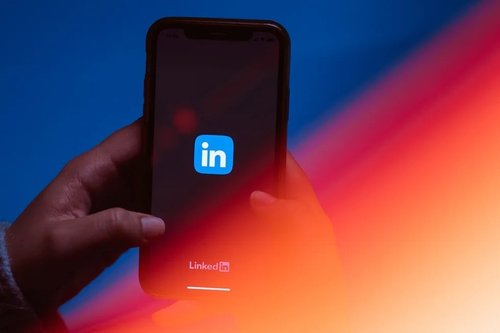
LinkedIn etiquette: the thin line between authenticity and TMI
Ever cringed at a LinkedIn post that went too far? Discover the secret to striking the perfect balance.
Jun 19, 2023
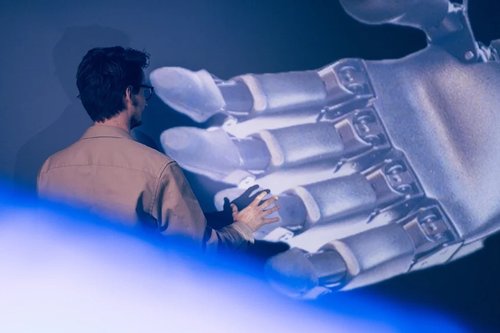
The rise of AI-assisted resume building
AI is reshaping the job hunt. Learn how to harness its power for crafting irresistible resumes, and stand out in the job market!
May 17, 2023
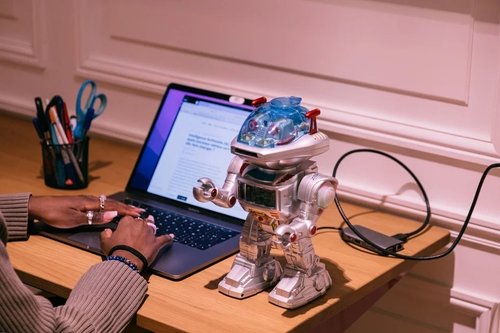
AI for (not so) good: are recruitment algorithms a threat to atypical profiles?
AI may not be able to detect the unique qualities of atypical candidates who don't meet the specified criteria.
Mar 22, 2023
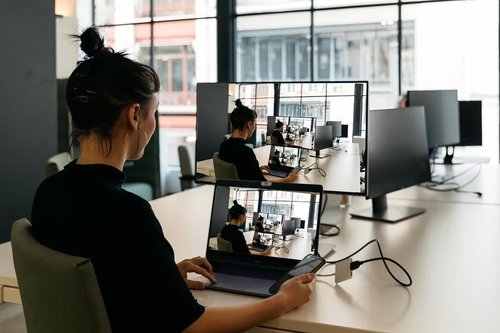
Virtual job fairs: how to maximize your experience
Whether you're an introvert, have a jam-packed calendar, or want to try a new way to meet prospective employers, virtual job fairs could be for you.
Dec 27, 2022
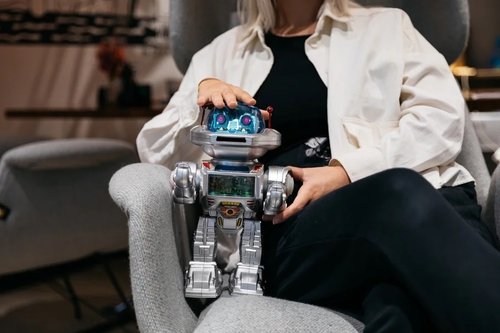
A recruiting revolution: why did NYC delay its landmark AI bias law?
AI ethicist Merve Hickok explains the ins and outs of NYC's new AI bias law—the first of its kind—and why it has been delayed until April 15, 2023.
Dec 26, 2022
The newsletter that does the job
Want to keep up with the latest articles? Twice a week you can receive stories, jobs, and tips in your inbox.

Looking for your next job?
Over 200,000 people have found a job with Welcome to the Jungle.
Explore jobs